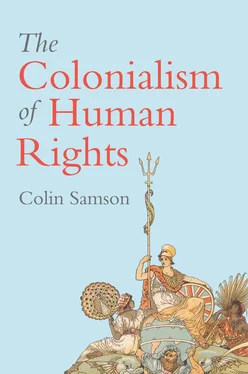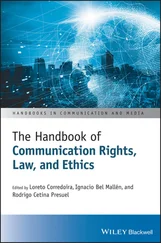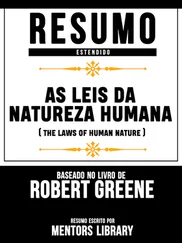The general outcome of this line of thought is to emphasise the difference between the juridical allocation and recognition of universal rights, and the very unequal de facto ability of individuals to exercise the rights they are formally allocated. Equality under the law is compromised by unequal ability to pay for legal advice and representation, and by the deep cultural gulf between specialised legal profession and many of those who might otherwise benefit from the protection of the law. 66
Britain’s Equality and Human Rights Commission issued a report in 2018 summarizing how these inequalities operate within the criminal justice system in England and Wales: ‘defendants from ethnic minorities are more likely to not trust the legal advice they receive and are more likely to plead not guilty than White defendants, owing to a lack of trust in the system. As a result, they are more likely to lose the potential benefits of early guilty pleas in criminal proceedings.’ 67According to the Commission, recent reductions in state funding for courts and legal aid have led to marked disadvantages within the law for those on lower incomes and ethnic minorities. All of this takes place in a social milieu in which hate crimes have increased and the xenophobia associated with the Brexit referendum has not abated. Similar evidence has been presented in the USA, discussed in more detail in chapter 3, indicating that African-Americans have been, and remain, disproportionately represented in the world’s largest prison system, and these disparities are attributed in many studies to a lack of information among prosecutors who fall back on racial stereotypes. 68These are ultimately related to images of black people inherited from slavery, segregation and the history of differential human rights in the USA.
These scenarios also appear in other Western democracies. In France, many people descended from its former colonies live apart in banlieues , and ‘a legal system … distinguishes between those who should and those who should not have political rights and be eligible for social services’. 69‘Behind the universal model of the deserving citizen’, Fredette argues, lies ‘the specter of a particular kind of French citizen’. 70These differentiations, however, build on fears that human rights would interfere with colonial rule at the time of the drafting of the UDHR and Geneva Convention. Britain was also against establishing the rights of non-European migrants and asylum seekers in European countries, and European colonial powers and settler states were hostile to the broader institutionalization of human rights for colonized peoples. 71The current forms of civic stratification clearly relate to the difficulties of maintaining universalism amid systems of historically continuous racial and class discrimination.
Regarding France, discrimination in the application of rights builds on distinctions made in colonial institutions in Algeria (and later West Africa) which reinforced differences between French settlers who were citizens and indigenous Algerians who were subjects. 72In the period leading up to the Algerian war of independence – covered more extensively in chapter 4– the complicated double electoral college system gave 1 million European settlers equivalent voting power to over 8 million indigenous Algerians. 73Although, as Cooper argues, these inequalities were always malleable and subject to ‘claim-making from below’, 74they underline the necessity for the colonial state of creating different citizenship regimes and also of modifying access to rights occasionally to placate indigenous populations. But, equal voting rights could never have been built into colonialism, since such rights could undermine colonialism itself. By the 1970s, at the close of the formal colonial era, however, there was a change from dealing with subjects under French dominion, with at least some rights, in France to dealing with immigrants or refugees with a whole different set of rights and exclusions.
The paradox and problem here is that, while nation-states can be charged by individuals, groups and other states with human rights violations, only individuals can be held to account through the various tribunals, courts and reconciliation efforts. Migrants rights advocates in Britain and civil rights activists in the USA might petition for recognition of their clients’ human rights, but all channels of appeal are part of the state that ultimately adjudicates all grievances, including those against its own institutions. Some of these institutions, of course, are responsible for formulating, implementing and enforcing rights that may well discriminate between different categories of humanity. In the context of this ‘statist bias’, Catherine Lu calls the circumstances arising from colonialism structural injustice and argues that the rendering of justice should go ‘beyond victims and perpetrators and toward the institutional, normative and material conditions in which they interact’. 75This, of course, has not occurred, in part because, returning to Charles Mills, race has underpinned the entire liberal framework of social and political thought from the outset, and at the same time it has largely been excluded from liberal debates on rights. 76
Differentiations in access and entitlement to human rights within Western states that have made racial civic stratification the norm can be traced to the first acts of European colonization, when tortuous debates over the rights of indigenous peoples resulted in indigenous and enslaved peoples simply becoming inferior rights-bearing subjects within the larger colonial order. 77I will have more to say on the continuities in these particular patterns in chapter 5, but differential treatment of indigenous peoples in settler colonial states reinforces the fact that Europeans have long represented indigenous peoples as biologically, culturally and – therefore – juridically inferior.
One of the measures of this today is in Canada where huge rates of murdered and missing indigenous women and girls have sparked substantial activism. A national enquiry on the subject published in 2019, as part of which over 2,300 affected people were interviewed, concluded that this amounted to genocide in both sociological and legal terms. The report argued strenuously that these tragedies were structurally embedded in Canada’s settler colonial society. ‘Ultimately, and despite different circumstances and backgrounds, what connects all these deaths’, the report stated, ‘is colonial violence, racism and oppression’. 78Police and medical authorities either did not respond appropriately, or in some cases were implicated in rapes and deaths. In Australia, the abduction of Aboriginal children who formed the ‘stolen generations’ underlies the common experience of denial of human rights to indigenous populations in settler colonial states. Scholars using Raphael Lemkin’s original definition of genocide as involving the forcible transfer of children from one group to another and the elimination of culture have classified this as genocide. 79In the liberal states of Canada and Australia, indigenous peoples are still victims of the murderous acts that prompted the formalization of human rights.
Looking within the internal European context, we could say that civic stratification was given more immediate impetus in the uprooting, removal and deportation of populations, especially across Central and Eastern Europe, in the late nineteenth and into the early twentieth centuries. This was done to create ethnically homogeneous zones under specific government authority as part of nation-building exercises. The processes by which rights were segmented, stratified and denied in Europe echoed the differentiation of rights under colonialism, and are articulated today as nation-states claim exclusive powers to define citizenship.
Читать дальше












